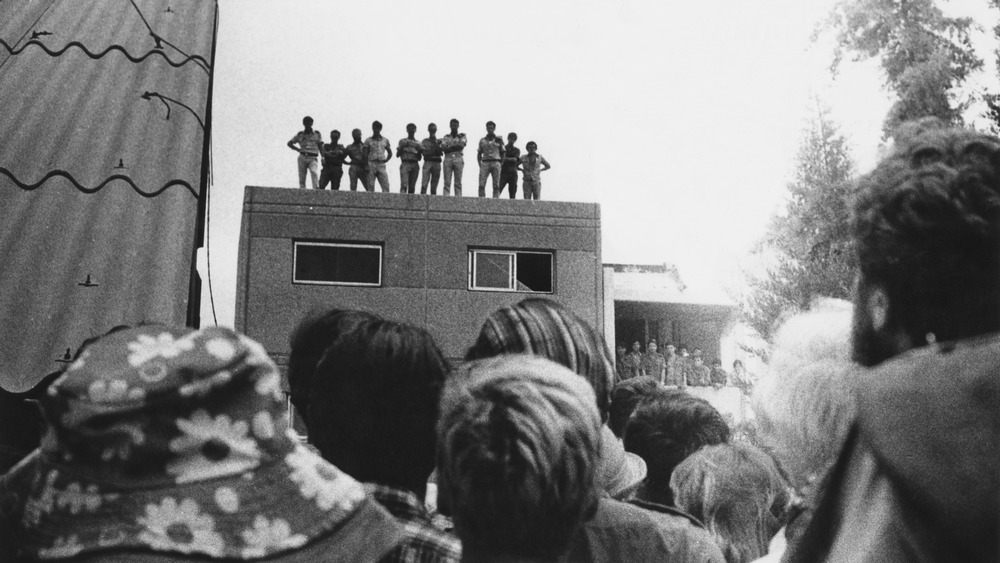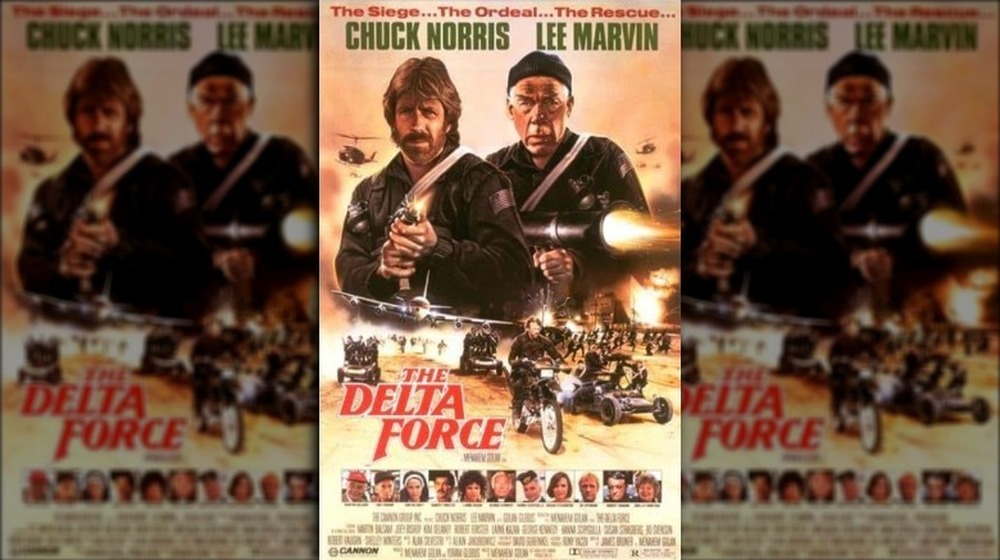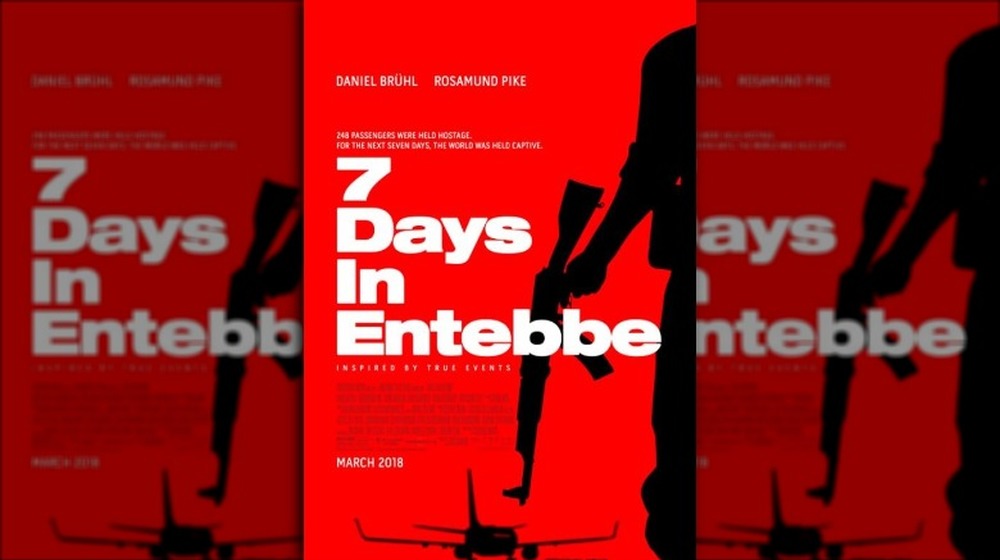The Anti-Terrorism Raid That Inspired At Least Two Blockbuster Movies
A military operation that freed dozens of hostages from Palestinian terrorists and their European and African enablers has inspired not one, but at least two blockbuster films.
On July 4, 1976, as detailed by The Guardian, a team of Israeli special forces operatives descended onto the city of Entebbe, Uganda with the goal of freeing about 100 passengers and crew, mostly Israelis, of a hijacked Air France flight who were being held in a building in the city.
A week earlier, members of a Palestinian terrorist group, with help from elements in Europe, hijacked the Paris-bound flight and diverted it to Entebbe. There, with the help of Uganda's then-dictator Idi Amin, who supported them, the terrorists separated the Israeli passengers from the non-Israelis, who were sent home. The terrorists kept the Israelis and the crew imprisoned in a disused building at Entebbee's airport, with a view towards using the hostages as leverage to secure the release of Palestinian prisoners.
When the dust had settled, three hostages were killed and 10 were wounded; one Israeli commando was killed and five were wounded; as BBC News explained; and seven hijackers, along with at least 20 Ugandan soldiers who supported them, were also killed. The hostages who survived — 102 of them — returned home safely.
The operation was and is considered such a resounding success that it has inspired two blockbuster movies.
The raid (indirectly) inspired Chuck Norris' 1986 film The Delta Force
The 1980s were rife with politically-charged action thrillers; after all, it was a time of expanding U.S. military presence in the Middle East and elsewhere, and filmmakers like Chuck Norris and others were keen to put out films showcasing Americans prevailing over terrorists, the Soviets, or other perceived enemies.
Narratively, the plot of The Delta Force in some ways mirrors the events of July 1976 in Entebbe (and here there will be spoilers for a decades-old movie). Middle Eastern terrorists hijack an aircraft, take them to a foreign city where the government is sympathetic to the hijackers, and are ultimately thwarted by an elite team of commandos, as detailed by The Los Angeles Times.
Similarly, The Irish Times clearly notes that some of the events of the Entebbe raid informed some of the plot points of The Delta Force.
Further, the '80s action flick was directed by Israeli auteur Menahem Golan, who also directed a much more straightforward retelling of the Entebbe raid years earlier: 1977's Entebbe: Operation Thunderbolt, which earned Golan an Academy Award nomination for Best Foreign-Language Film.
As The Lubbock Avalanche-Journal reported following Golan's death in 2014, Norris would credit the Israeli director for helming the film that jump-started his career.
"Menahem's faith in me as an actor was the real reason for the breakthrough of my movie career," Norris said.
The raid also inspired 2018's 7 Days In Entebbe
Unlike The Delta Force, and like Entebbe: Operation Thunderbolt, Director José Padilha's 7 Days In Entebbe (as it's known in its U.S. release), attempts to be a straightforward retelling of the events that led to their depiction in the film.
The movie, starring Rosamund Pike and Daniel Brühl as two of the hijackers, focuses not only on the derring-do of the Israeli commandos who carried out the raid that freed the hostages, but also on the machinations of the Israeli government at the time.
As Time reported, as is often the case with movies purportedly inspired by actual events, the narrative of what actually happened historically and the plot points presented on the screen don't add up perfectly. For example, Padilha took liberties with the way the hostages were segregated following the hijacking, and portrayed the hijackers as slightly less bloodthirsty than they actually were, among other bits of dramatic license.
However, the film was not afraid to point out a historical truth that historian Saul David says had come to be obscured by myth in the decades since the events in Uganda: that the mission almost failed, and that the terrorists' own compassion may have helped save the day.
"The mission almost failed and it almost certainly would have failed in terms of the loss of life if it hadn't been for a humanity shown on the part of the terrorists," David said.


